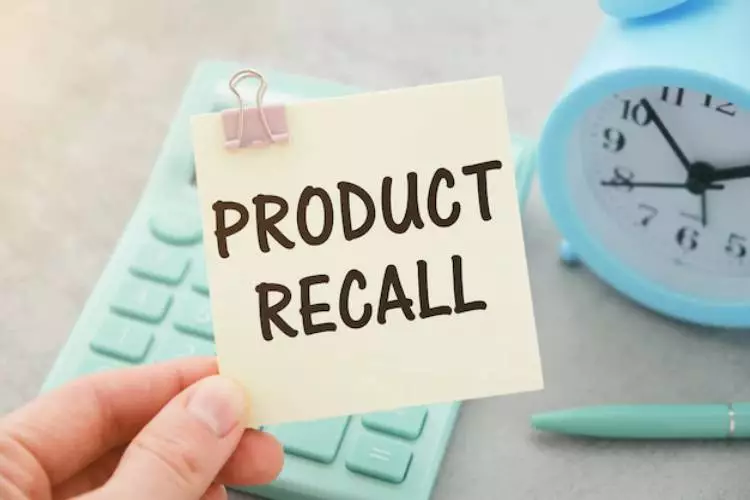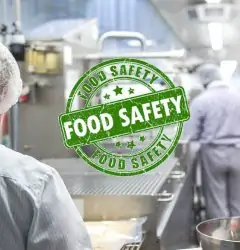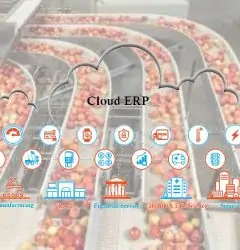08 Mar

The food industry has always been one of the most indispensable industries in the world. One of the most crucial parts of this business is ensuring the quality of its products to avoid the spread of food-borne diseases.
To guarantee the quality of products, food inspectors carry out regular and detailed surveys, making sure that businesses conform to international health guidelines. If a product is deemed unsuitable, it is immediately recalled.
Food recalls essentially involve an item being taken off the market after an inspection has decided that it holds potential threats to consumers’ health. Food recalls are an important way to ensure the quality of a product, but with increasingly strict health and safety standards, recalls have become an increasingly recurrent phenomenon in the food industry.
Food recalls are something every food business wants to avoid. Not only does a recall delay product delivery, but it also increases a businesses’ costs of production, threatens its productivity and profitability, and tarnishes its reputation.
Here, we compiled some of the issues businesses face when dealing with food recalls and how lot traceability can help prevent recalls and protect your business integrity.
What are the problems food businesses face when dealing with recalls?
Increased production costs
Whenever a batch of products is recalled, the producer has to remake the entire lot from scratch. Not only does this lead to wastage of resources, but it also adds up production costs spent on the recalled batch that earned no revenue. This deficit can be detrimental for food businesses.
Delayed deliveries
A recall always leads to the ordered batch being sent back to the producers and in replacement, a new batch is supposed to be delivered. Since orders are time-bound, a recall can lead to serious delays and disrupt a business’s entire schedule. Along with this, consumers also receive their order past its deadline, which can make them lose their trust in a business.
Loss of customer support and trust in the business
With increasingly strict quality checks, the number of recalls in the food industry is increasing at an alarming rate. This often leads to a shortage of stock in the market. Customers face this lack of supply and lose trust in business owners because of their inability to provide a steady stock. Lack of consumer trust in a business causes them to lose their integrity.
How do food businesses prevent recalls and protect their integrity?
With food controls becoming increasingly strict, the number of recalls has also exponentially increased, leading to loss of business integrity and consumer trust, as well as decreased productivity and profitability.
Because of these losses, it has rapidly become apparent that businesses need to find a solution to cope with recalls and protect their integrity. One available solution is using food ERP (enterprise resource planning) equipped with lot traceability.
Lot traceability is a feature that enables business owners to oversee all stages of the production process and the supplies that are fed into it as raw materials. Lot tracking allows all products to be labeled with numbers specific to them that let them be traced back to their production.
A food ERP solution that comprises lot traceability has several benefits that prevent recalls and help protect a business’s integrity. Here we have compiled some of these benefits.
Instantaneous information tracking
Food ERP ensures data instantaneous data tracking, which means that products are labeled and tracked throughout the production process through lot traceability. This real-time tracking helps oversee and manage the production process, and ensure that products are manufactured and delivered according to their pre-determined deadlines.
Overseeing the production process also helps producers keep quality checks and guarantee that items meet global health standards.
Making products trackable
Food ERP with features like lot traceability makes sure that products are trackable throughout the production process and to their point of delivery.
To make an item trackable, it is encoded with a serial number or barcode unique to it. Scanning this number or code relays information about the product’s manufacture date and expiry date. This information is used to ascertain that products are sellable and to dispose of any expired goods.
Maintaining business integrity by not breaching customer trust
Food ERP oversees the quality of each item and if even one product is damaged or past its sell-by date, the entire batch is discarded. This minimizes the risks of a food recall and also helps maintain uniformity in product quality. Due to this, customers are provided with quality items regularly, and their trust in the business label grows.
FAQs
What causes a product recall?
Product recalls are caused by defects in the items’ production process or in the product’s safety or quality itself. These defects can be potentially harmful to consumers; hence they result in a product being recalled.
Who is responsible for product recall?
Governing bodies like the FDA (Food and Drug Administration) are generally responsible for recalling a product if it proves to be a threat to consumers.
To Sum Up
With the problems associated with product recalls, it is apparent as to why a business would do its best to prevent them. Not only do businesses suffer from reduced productivity and profitability in the case of a recall, but they also face a loss of integrity and an increase in production costs.
Because of the damage, a product recall can cause to a business, finding a solution is imperative, one such solution is ERP which has features like lot traceability. An example of such software is Ecodocs.
Ecodocs is a cloud-based CMMS software solution that is available on mobile devices and offers real-time tracking of products. With Ecodocs, businesses can oversee the entire production process and follow their products till their delivery to ensure that they meet global health and quality guidelines.




Ecodocs